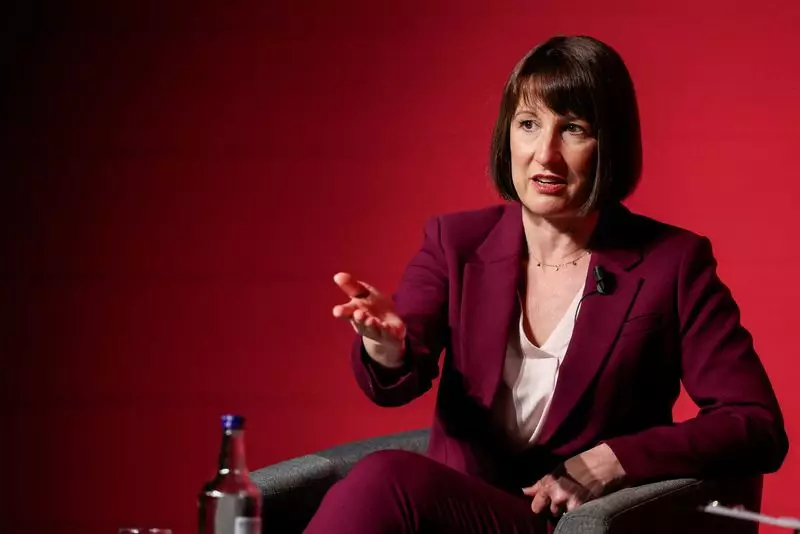As the British economic landscape shifts under the stewardship of new leadership, Finance Minister Rachel Reeves stands at the forefront, ready to address the pressing matter of public investment. With an imminent budget statement scheduled for October 30, 2023, Reeves has committed to introducing a structured framework of “guardrails” aimed at controlling the scale of government borrowing. This initiative is not simply a fiscal experiment but a strategic move designed to navigate the delicate balance between fostering growth and maintaining investor confidence in a climate where public debt approaches 100% of the nation’s GDP.
Setting the Stage for Investment
Reeves recognizes that the Labour government, led by Prime Minister Keir Starmer, must take decisive steps to enhance infrastructure and pave the way for a sustainable, net-zero economy. These initiatives are critical for rejuvenating economic growth in a country still grappling with the repercussions of previous administrations’ fiscal policies. By emphasizing “prudent, sensible investments,” Reeves is advocating a long-term vision that prioritizes sustainable growth over short-term fixes, resonating with investors seeking stability in an unpredictable economic environment.
Understanding the Legislative Context
Investors are on high alert as they anticipate the upcoming budgets, particularly in light of historical precedents set in 2022 when the country’s bond market faced instability under the ill-fated leadership of former Prime Minister Liz Truss. Her administration’s reckless proposals for unfunded tax cuts resulted in market turmoil and political upheaval that led to her resignation. In this context, Reeves’ cautious approach, involving rigorous oversight from the Office for Budget Responsibility (OBR) and the National Audit Office (NAO), signifies a necessary pivot toward fiscal accountability.
The introduction of institutional scrutiny of the government’s investment plans marks a significant shift in how public spending is approached. By engaging bodies like the OBR and NAO, the Reeves administration aims to provide transparency and assure investors that expenditures will yield tangible benefits rather than being steeped in bureaucratic inefficiencies. “We will make sure that investment genuinely boosts growth,” Reeves stated, reflecting her awareness of the critical need for accountability and effective resource allocation.
A key aspect of Reeves’ strategy involves a proposed revision of the fiscal debt rule. Her intention to incorporate the benefits of public investment into the fiscal calculus, rather than merely considering costs, could lead to a paradigm shift in how economic growth is measured. While the specifics of this approach remain vague, it signals a departure from traditional austerity measures and paves the way for a more innovative economic policy that prioritizes long-term growth.
Reeves has been clear about the need for various tax increases to mitigate the financial challenges inherited from the previous Conservative administration. She has emphasized that avoiding a return to austerity is pivotal in her economic vision. However, this poses a considerable challenge: implementing tax increases without dampening consumer confidence or stifling economic activity. Reeves’ efforts to “wipe the slate clean” suggest a fresh start, necessitating a collaborative dialogue with the public about financial realities and the constraints on government finances.
Rachel Reeves’ initiatives represent a holistic view of economic management, one that intertwines fiscal prudence with a commitment to sustainable investment. As she embarks on her first budget, the stakes are undeniably high. The Labour government must prove that it can effectively manage public finances while fostering an environment conducive to growth. This delicate balance will determine not only the success of Reeves’ policies but also the broader economic trajectory of the United Kingdom in the coming years. By fostering accountability, rethinking fiscal policies, and communicating transparently with the public, she aspires to instill confidence among investors and citizens alike—a challenging yet crucial endeavor in these uncertain times.

